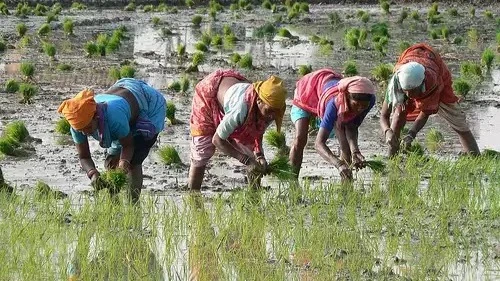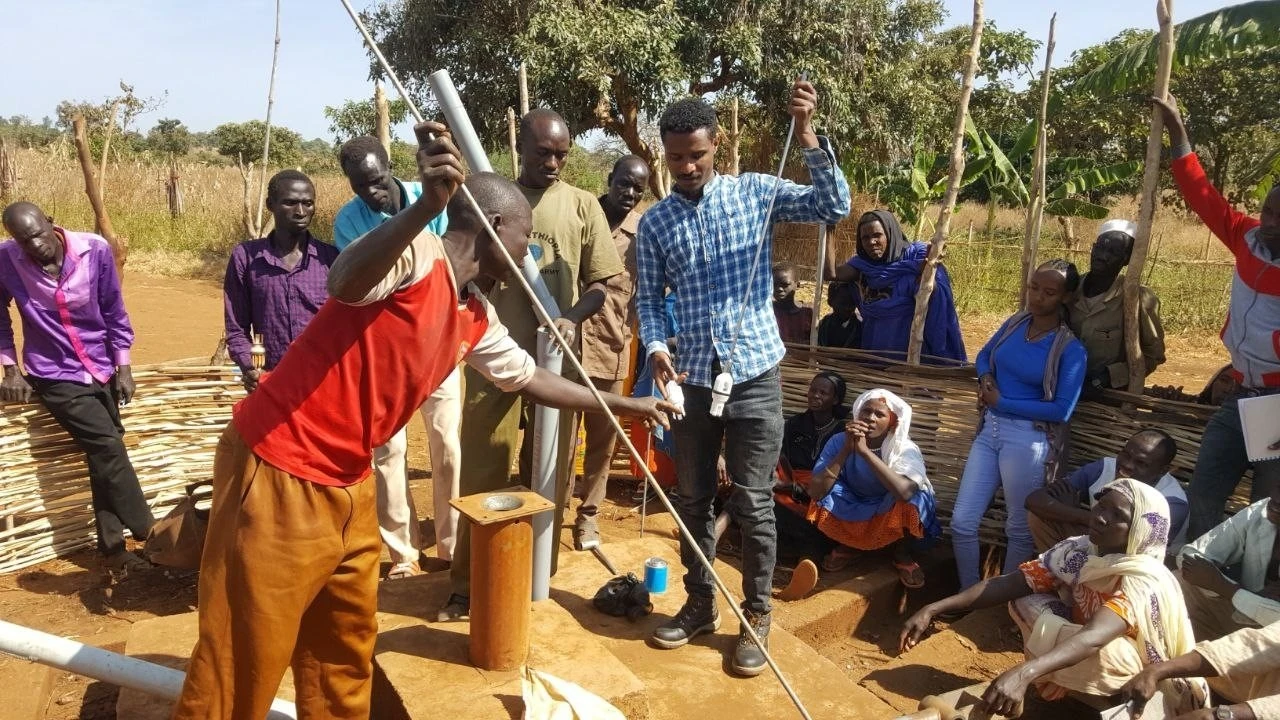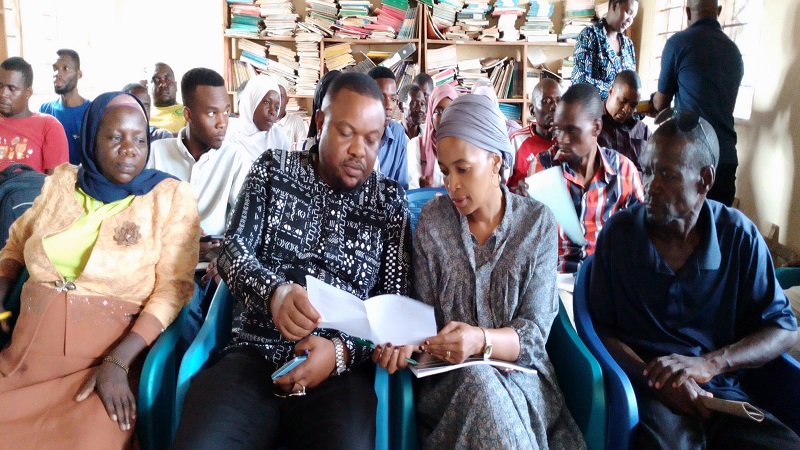Farmer urged to adopt climate resilient farming

Farmers have been urged to adopt climate-resilient agriculture that is environmentally friendly, protects forests, and follows best agricultural practices to mitigate deforestation in the country.
Ewald Emil, the monitoring, research and communication Officer at the Tanzania Forest Conservation Group (TFCG), made these remarks recently while speaking to journalists and staff from the Tanzania Community Forest Conservation Network (MJUMITA) during their visit to Mnkonde village.
The purpose of the visit was to assess the impact of the Integrated Forest Biomass Energy Solutions for Tanzania (IFBEST) project.
In many areas of the country, people are engaging in agricultural practices that are neither environmentally resilient nor aligned with agricultural best practices.
Shifting agriculture is prevalent, with individuals cutting down trees indiscriminately and moving to new areas every two years in search of fertile land.
As a result, forests are disappearing due to unsustainable land-use practices, including agricultural activities that lead to deforestation, alongside charcoal production and firewood harvesting conducted without sustainable methods.
The demand for land is increasing annually due to the growing population. As the population rises, more land will be required for agricultural activities, livestock keeping, and settlements.
Tanzania has 48 million hectares of forest, and every year approximately 469,000 hectares are cleared for farming activities, timber harvesting, charcoal production, bush fires, cattle grazing, tobacco curing, and other uses.
In an effort to reduce deforestation, Emil stated, “We, as forest conservation stakeholders, are assisting villages across various regions to establish the best systems for forest management, ensuring sustainability for future generations.”
With funding from the IFBEST projects, they have empowered villagers to create land-use plans for their communities, designating areas for agricultural activities, livestock keeping, water sources, residential use, grazing areas, and setting aside village land as forest reserves for community-based forest management, supported by the European Union through the Ministry of Finance.
“In the village land forest reserve, 10 percent is allocated for sustainable timber and charcoal harvesting, while 80 percent remains untouched,” he noted.
He warned that if the government and other stakeholders involved in forest conservation do not take serious measures to educate communities about forest conservation and sustainable harvesting practices, forests will diminish, leading to severe consequences such as climate change, water scarcity, and the transformation of many regions into deserts.
“If communities adhere to what we have taught them, our forests will be safe by 2034,” he asserted.
Furthermore, as the transition to clean energy progresses, it is vital to encourage sustainable forest harvesting practices.
“As TFCG and MJUMITA, we are visiting various villages nationwide to educate communities on community-based forest management, enabling them to harvest forests sustainably and reduce deforestation, thanks to funding from the European Union,” he stated.
He commended the EU for its financial support, which has enabled communities in Handeni, Kilindi, and Pangani to establish village land forest reserves for community-based management and sustainable charcoal harvesting.
With EU funding, these villages have developed land-use plans, forest management plans, and by-laws to support community-based forest management and harvesting strategies.
This initiative will allow them to benefit from local forest resources and generate income to fund village development projects.
Napoleon Mlowe, the Natural Resource Officer for Handeni District Council, remarked, “As the management of Handeni District Council, we are very pleased with the achievements in our district through the IFBEST project.”
The IFBEST project has transformed lives, as people now engage in sustainable charcoal harvesting, while others have formed Village Savings and Loans Associations (VSLAs) to secure capital and establish small businesses.
Communities now understand the importance of conserving local forests and the benefits they provide.
They have also received training on good governance, forest conservation, and how to benefit from forest resources and products.
“This project will transform our communities economically and socially, enabling villages to generate income to implement development projects and allowing the district and its residents to participate in carbon trading through forest conservation,” he added.
In a bid to prevent deforestation, Handeni District Council has allocated a total of 15m/- for forest conservation within village land forest reserves.
Top Headlines
© 2025 IPPMEDIA.COM. ALL RIGHTS RESERVED

























